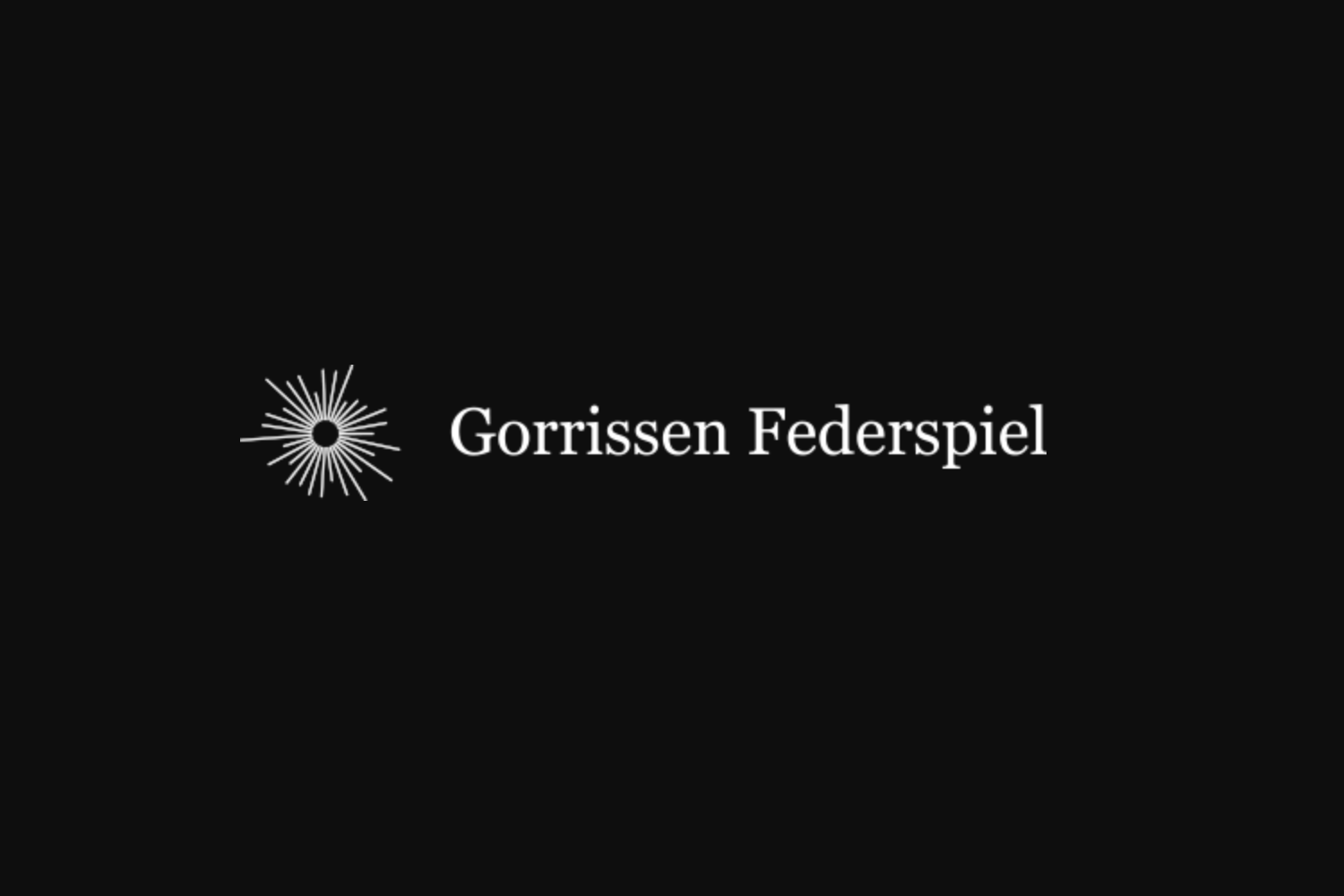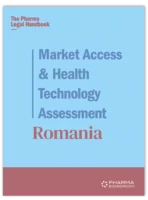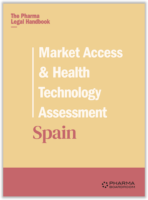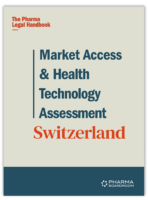Cannabinoid Drugs, Medicinal Cannabis and Opioid Drugs
Gorrissen Federspiel / Denmark
An intro to the legal situation for cannabinoid drugs, medicinal cannabis and opioid drugs in Denmark. Prepared in association with Gorrissen Federspiel, a leading law firm in Denmark, this is an extract from The Pharma Legal Handbook: Denmark, available to purchase here for GBP 119.
Cannabinoid Drugs
1. Are Cannabinoid Drugs authorized in your country?
Cannabinoid drugs, i.e. medicinal products where the active substance is cannabinoids, can be authorised in Denmark in accordance with the general rules on development, manufacture and marketing under the Medicines Act.
This means that in order to obtain a marketing authorization for a medicinal product that is cannabis-based, the company must show that the benefits of the medicinal product outweigh the risks and side effects, that the medicinal product is safe and that it is of a sufficiently high and consistent quality. To document benefits, safety and quality, the company must as a starting point conduct laboratory trials, animal trials, and clinical trials in humans. For further information on marketing of medicinal products, please see Chapter 1, Question 3.
2. What are the regulatory authorities with jurisdiction over Cannabinoid Drugs?
The DKMA is responsible for authorising the sale of Cannabinoid Drugs on the Danish market.
3. Is there a specific regulatory framework for the authorization, pricing, and reimbursement of Cannabinoid Drugs?
Please see Question 1 on authorization.
Please see Chapter 1, Question 12 on pricing and Chapter 1, Question 13 on reimbursement.
The company that places the medicinal product on the market can apply for the product becoming eligible for reimbursement. The DKMA determines whether a medicinal product should be eligible for reimbursement on a case-by-case basis. So far, the only medicinal product containing cannabinoids authorised in Denmark (please see Question 4 below) is not eligible for reimbursement.
However, the doctor prescribing the medicinal product may submit an application for single reimbursement for individual patients.
4. Which are the cannabinoid drugs that have received market approval to date?
One medicinal product containing cannabinoids has been authorised in Denmark and one medicinal product containing cannabidiol has been authorised in Denmark/EU.
The medicinal product containing cannabinoids is called Sativex® and is an oromucosal spray. The product is available on prescription only from specialists in neurology. It is indicated as treatment for symptom improvement in adult patients with moderate to severe spasticity due to multiple sclerosis.
There is no reimbursement for Sativex®.
The product containing cannabidiol is Epidyolex®.
5. Who can prescribe Cannabinoid Drugs?
Only neurologists are allowed to prescribe Sativex®.
A doctor may also apply for a compassionate use permit where a medicinal product is not marketed in Denmark. In the context of cannabinoid drugs, a doctor may apply for a compassionate use permit for the products Marinol or Nabilone. The DKMA will decide whether to grant such permits on a case-by-case basis.
A doctor may also prescribe a magistral preparation where the active substance is cannabis.
6. Is there a list of doctors authorized to prescribe Cannabinoid Drugs?
No.
7. What approvals or notifications are required to prescribe Cannabinoid Drugs?
No specific approvals or notifications are required to prescribe cannabinoid drugs. However, please note that only neurologists are allowed to prescribe Sativex®.
8. Which organizations are authorized to sell/distribute Cannabinoid Drugs available?
The wholesale and distribution of medicinal products requires an authorization from the DKMA.
Sale of prescription only medicinal products to patients/consumers are reserved for the pharmacies.
9. Is there a list of retailers/distributors authorized to sell Cannabinoid Drugs?
There is no specific list of wholesale distributors of cannabinoid drugs. However, the DKMA publishes lists of companies having authorizations pursuant to Section 39 of the Danish Medicines Act (i.e. companies that are authorized to manufacture, import, export, store, resell, distribute, dispense, split and package medicinal products).
10. Are there proposals for reform or significant change to the regulation of Cannabinoid Drugs?
No. However, please see the section on Medicinal Cannabis below.
11. When are they likely to come into force?
N/A
Medicinal Cannabis
12. Is Medicinal Cannabis authorized in the country?
Yes. A pilot programme for medicinal cannabis (“Pilot Programme”) was established in Denmark in January 2018. Initially, the Pilot Programme was intended to be a four-year program. However, the Pilot Program has been prolonged until 31 December 2025.
The DKMA assesses that medicinal cannabis should be considered only for the following indications for which there is some supporting evidence of the effect of medicinal cannabis:
- painful spasms caused by multiple sclerosis,
- painful spasms caused by spinal cord damage,
- nausea after chemotherapy, and
- neuropathic pain.
Under the Pilot Programme, it is possible for companies to apply for
- a licence to cultivate and manufacture cannabis bulk (i.e. processed cannabis for further processing into primary cannabis products),
- a licence to import and/or manufacture cannabis primary products, and/or
- a licence to manufacture cannabis intermediate products (i.e. products that are manufactured by labelling cannabis primary products and which may be distributed to pharmacies for processing into products for end-users).
Further, it has become possible for Danish pharmacies and hospital pharmacies to manufacture and dispense cannabis end-products (i.e. cannabis products that may be dispensed to individual patients based on doctors’ prescriptions) based on specific cannabis intermediate products that have been admitted to a list established by the DKMA.
Under the Pilot Programme, patients can now legally to obtain medicinal cannabis on the basis of a prescription from a doctor. The medicinal cannabis must be dispensed by a pharmacy.
13. What are the regulatory authorities with jurisdiction over Medicinal Cannabis?
The DKMA is the main regulatory authority with jurisdiction over the Pilot Programme on medicinal cannabis.
14. What is the regulatory framework for the authorization, pricing, and reimbursement of Medicinal Cannabis?
Authorization
Cannabis products that are to be comprised by the Pilot Programme must be reviewed by the DKMA. The DKMA has a published list of the cannabis products that have been admitted to the Pilot Programme.
The requirements for admission of cannabis intermediate products and cannabis primary products are laid down in the Danish Act on a Medicinal Cannabis Pilot Programme (Consolidated Act no. 1668 of 26 December 2017, as amended, the “Pilot Programme Act”).
The cannabis products on the DKMA’s list are not necessarily available for prescription and dispensing. The products available for prescription and dispensing are listed on the website medicinpriser.dk (medicine prices).
Pricing
Pricing of medicinal cannabis under the Pilot Programme is governed by the Danish Executive Order no. 2503 of 14 December 2021 on calculation of prices on cannabis end-products.
The manufacturer of a cannabis intermediate product must submit the pharmacy purchase price to the DKMA. The prices for the cannabis end-products will be calculated on the basis of this pharmacy purchase price per packaging, with an addition of 7,9 per cent of the pharmacy purchase price and DKK 5,46.
Based on the register price, the pharmacy may add prescription fees the manufacture fee, and/or certain other fees, e.g. delivery and invoicing fees.
Reimbursement
A special reimbursement scheme for medicinal cannabis has been introduced in January 2019 in connection with the Pilot Programme.
Under the reimbursement programme, patients that have been prescribed medicinal products as part of the Pilot Programme are eligible for reimbursement. The reimbursement is automatically deducted when the medicinal cannabis is purchased in the pharmacy. The reimbursement thresholds and reimbursement rates applicable to medicinal cannabis can be found on the DKMA’s website.
15. How is the production and import of Medicinal Cannabis regulated and by which agencies/authorities?
As mentioned under Question 12, the production and import of cannabis products is subject to authorization from the DKMA.
The manufacture and import is regulated by the Pilot Programme Act and a number of supplementing executive orders.
16. What approval or notifications are necessary to produce or import Medicinal Cannabis?
Please see Question 1 of Medicinal Cannabis on the different types of authorization that must be obtained when importing, manufacturing and cultivating medicinal cannabis.
As cannabis is a euphoriant substance, a company must – in addition to the licence to import, manufacture and/or cultivate the different cannabis products – also obtain an authorization to handle euphoriant substances.
17. What is the regulatory framework for the marketing and distribution of Medicinal Cannabis?
A manufacturer of intermediate cannabis products must only distribute cannabis intermediate products to pharmacies, hospital pharmacies and companies authorised to distribute medicinal products in accordance with Section 39 of the Danish Medicines Act and an authorization for activities regarding euphoriant substances.
It is not permitted to advertise for cannabis products included under the Pilot Programme.
18. How can patients obtain Medicinal Cannabis?
Patients may obtain medicinal cannabis from licensed pharmacies on the basis of a doctor’s prescription.
19. Who can prescribe Medicinal Cannabis?
Medicinal cannabis can be prescribed by doctors. However, doctors are not obligated to prescribe medicinal cannabis.
20. Is there a list of doctors authorized to prescribe Medicinal Cannabis?
No. As any doctor may in principle prescribe medicinal cannabis, there is not specific list of doctors authorised to prescribe medicinal cannabis.
21. What approvals or notifications are required to prescribe Medicinal Cannabis?
There is no approval or notification required to prescribe medicinal cannabis.
22. Where is Medicinal Cannabis available?
Medicinal cannabis may be dispensed by pharmacies. If the patient is treated in a hospital, it is the hospital pharmacy that dispenses the product to the patient.
23. Is there a list of retailers authorized to sell Medicinal Cannabis?
Medicinal cannabis must be sold by licensed pharmacies. There is no specific list of pharmacies selling medicinal cannabis.
24. Are there proposals for reform or significant change to the regulation of Medicinal Cannabis?
The Pilot Programme became effective on 1 January 2018 and was initially set to continue for four years until 31 December 2021. Based on continuous evaluations, the Pilot Programme has been prolonged until 31 December 2025.
Opioid Drugs
25. Are Opioid Drugs authorized in your country?
Yes. Opioid drugs, i.e. medicinal products where the active substance is a euphoriant substance, can be developed, manufactured, distributed, prescribed and dispensed in compliance with the applicable regulatory framework on medicinal products.
Medicinal products where the active substance is a euphoriant substance are not only subject to the Danish Medicines Act but also to the Danish Act on Euphoriant Substances (Consolidated Act no. 715 of 13 June 2016 on euphoriant substances, “Euphoriant Substances Act”), and the Danish Executive Order on Euphoriant Substances (Executive Order no. 557 of 31 May 2011 on euphoriant substances, “Euphoriant Substances Order”).
26. What are the regulatory authorities with jurisdiction over Opioid Drugs?
The regulatory authority with overall jurisdiction over opioid drugs is the DKMA.
27. Is there a specific regulatory framework for the authorization, pricing, and reimbursement of Opioid Drugs?
Opioid drugs may be authorised in accordance with the rules on authorization of medicinal products. Please see Question 3 on Regulatory, Pricing and Reimbursement Overview.
A company that wishes to engage in activities with euphoriant substances covered by the Euphoriant Substances Order, including import, export, distribution, and manufacture, must obtain an authorization from the DKMA. This requirement does not apply to licensed pharmacies.
The rules on pricing and reimbursement applicable to regular medicinal products, also apply to opioid drugs. Please see Question 2 on Regulatory, Pricing and Reimbursement Overview.
28. Which are the Opioid drugs that have received market approval to date?
Searches in the Danish medicinpriser.dk, shows that some opioid drugs that have received market approval to date include fentanyl, hydromorphone, morphine, methadone, ketamine, and opium.
29. Who can prescribe Opioid Drugs?
As a starting point, opioid drugs are only available on doctors’ prescription.
30. Is there a list of doctors authorized to prescribe Opioid Drugs?
There is no specific list of doctors authorized to prescribe opioid drugs.
Medicinal products with addictive properties to be used as part of treatment of persons suffering from drug addiction may as a starting point only be prescribed by doctors employed at specific municipal, regional or private institutions.
31. What approvals or notifications are required to prescribe Opioid Drugs?
There is no special approvals or notifications required to prescribe opioid drugs.
However, please see Question 29.
32. Which organizations are authorized to sell/distribute Opioid Drugs available?
Only pharmacies, including hospital pharmacies, doctors and veterinarians are permitted to dispense opioid drugs.
Only pharmacies, including hospital pharmacies, and persons or entities that have received an authorization from the DKMA may distribution/sell opioid drugs. Specific rules apply with respect to pharmacies’ account of sales and stock of euphoriant substances.
33. Is there a list of retailers/distributors authorized to sell Opioid Drugs?
No, as a starting point, any pharmacy can dispense opioid drugs based on a prescription.
34. Are there proposals for reform or significant change to the regulation of Opioid Drugs?
No.
35. When are they likely to come into force?
N/A



































































